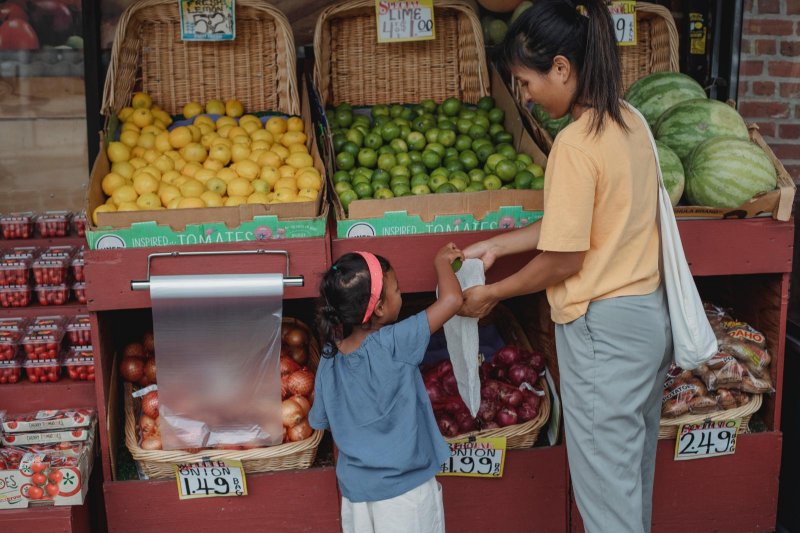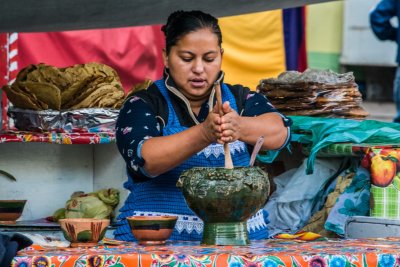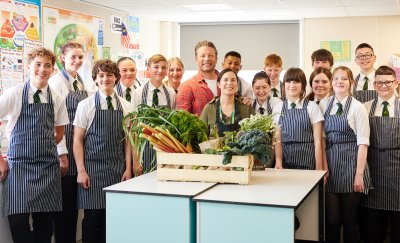 Healthy Start Market. Credit: Kamaji Ogino | Pexels
Healthy Start Market. Credit: Kamaji Ogino | Pexels
Defra has today published the first UK Food Security Report, as commited to in the 2020 Agriculture Act. It sets out an analysis of statistical data relating to food security and predicted trends. For the first time, it includes data on household food security, after successful campaigning for inclusion of this data by Sustain, the Food Foundation and Oxford University, since 2016. Subsequent reports must be published at least once every three years.
Kath Dalmeny, Chief Executive at Sustain, the food and farming alliance, said:
“For decades, the nation’s food security has been measured only in terms of security of supply and how much food is available to the people and businesses who buy it. This is helpful for strategic planners, but is a kick in the teeth to the millions of people in this country who cannot afford to buy the food, even if there’s enough of it on the supermarket shelves, due to low wages and low income.
"The data reveals that a shocking 8% of the British population (5.4 million people) did not have enough food the financial year 2019 to 2020 – half of these having “very low food security” (2.7 million people). These figures are for the pre-Covid period, and we know that the situation has got much worse for millions more people during the pandemic, falling through the safety net that is meant to protect our fundamental human right to food.
"Food banks handing out emergency food parcels is not the answer to endemic food insecurity at this scale. Our government, local authorities and public institutions need to take a hard look at these household food security figures and systematically adopt the solutions. Living wages, adequate social security, control of household costs, free school meals, school holiday programmes, meals on wheels services, support for affordable community food schemes and co-ops would be a very good start to address widespread hunger and malnutrition across the UK.”
Vicki Hird, Head of Sustainable Farming at Sustain, said:
"With acute problems for farming in areas such as worker availability and costs inflation, and longer-term chronic supply chain and climate issues not being addressed, this food security report is a stark reminder of just how vulnerable we are. It confirms that we could and should increase domestic production in ways that tackle nature and climate crises, using agroecological systems to produce more and diverse foods especially more domestic fruit and vegetables and livestock systems that don't rely on the increasingly harmful and risky supply of imported feeds. With nutritional security as the aim, we could achieve a far better fit for the UK farming system to deliver but it means a better vision for farming and better directed support."
Ben Reynolds, Sustain’s Deputy Chief Executive, commented:
“This government report recognises the importance of diversity in our food sector but goes on to flag the risk that the five biggest food retailers have 60 per cent of market share between them. The report suggests that this share poses no risk to supply chain resilience, and yet bizarrely has no basis by which to measure this.
“The power balance in the supply chain is the missing part of the picture that effectively forces producers and manufacturers to comply or else fail through lack of alternative markets. Building better routes to market, with new infrastructure, will provide a more resilient and stable market for UK farmers and food businesses."
Sustain’s Children’s Food Campaign Co-ordinator Barbara Crowther said:
“The report confirms the vital importance of healthy school lunches as a key pillar of nutrition security for millions of families children across the UK. Whilst this report indicates a slight increase in eligibility for free school meals, this is largely due to loss of income as a result of the Covid pandemic, not to any increase in provision from the Government.
"It’s only in Scotland, where universal primary school meals are being phased in during 2021-22, that the report predicts any significant increase in children’s access to free healthy school meals. The very recent agreement in Wales to expand free school meals to all primary school children over the next three years is not mentioned, but also offers hope for the future.
"Meanwhile the picture for the rest of the UK is stark. 2022 is the year that children who started school in September 2019 transition out of Universal Infant Free School Meals – which is worth £447 per child per year. As transitional protections come to an end, only children from families in receipt of Universal Credit whose net income is below £7,400 will continue to receive free school meals in England. We will not stand by and allow this postcode lottery for school meals across the UK to continue. It’s time for England and Northern Ireland to join the other nations with a vision for universal and inclusive access to a healthy school lunch for all children.”
Cecily Spelling, Food Poverty Campaign Coordinator for Sustain, said:
“This report shows that while loss of household income meant more families became eligible for healthy start vouchers during the pandemic, take up remained static. We know that 40% of eligible families are losing out and the government needs to do more to promote the scheme. This trend is bucked in Scotland where vouchers have a higher value and are digitised.
“England has just introduced a digital service but delays and charges for calls to the helpline are another barrier to families who have also been hit by Universal Credit cuts and the rising cost of living. We’re calling on the Government to step up and remove call charges so no one has to pay a penny to access the scheme and send paper vouchers whilst families wait for their new card so they don’t have to go without in the meantime.”
“Furthermore, it is British children from the most vulnerable families with no recourse to public funds who are at risk. Since losing a court case in June, the Department for Health and Social Care has sent out 228 application forms for Healthy Start vouchers to families with the no recourse to public funds (NRFP) immigration condition, but only given vouchers to eight of them. This is shocking and needs addressing urgently.”
You can access the government's food security report here
National Food Strategy: Launched in two parts over 2020-2021, the National Food Strategy is an independent review commissioned by government to set out a vision and a plan for a better food system.
Sustain
The Green House
244-254 Cambridge Heath Road
London E2 9DA
020 3559 6777
sustain@sustainweb.org
Sustain advocates food and agriculture policies and practices that enhance the health and welfare of people and animals, improve the working and living environment, promote equity and enrich society and culture.
© Sustain 2024
Registered charity (no. 1018643)
Data privacy & cookies







